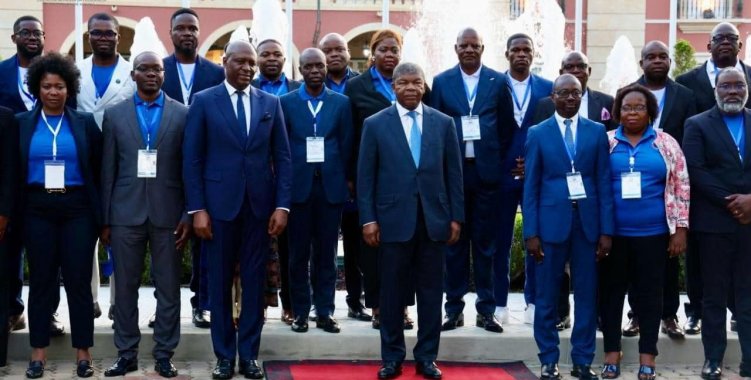In a statement commemorating the Day of Peace and National Reconciliation, which takes place this Thursday, João Lourenço stated that 22 years after the end of the war, which mourned and tore apart the Angolan nation, citizens today live "a very different reality".
According to João Lourenço, the normalization of the functioning of republican institutions has allowed the foundations of the Democratic Rule of Law to be strengthened, guaranteeing national unity and ensuring the defense of national sovereignty.
The head of state cited that the recovery of destroyed infrastructure, the relaunch of economic life, the demining of fields, which required "a gigantic effort from the Government", with consequences that are still reflected in public accounts today.
João Lourenço also pointed out the huge investments in drinking water and electricity supply systems, "which are already benefiting millions of citizens", as well as in education and health, "with the construction of countless educational establishments of different levels and research centers, as well as the construction of a considerable number of new hospital units throughout the country, many of which are reference ones".
"The investment in agriculture and agro-industry, as a way of diversifying our economy and reducing dependence on oil, has attracted the interest of national and foreign investors", he highlighted.
According to the President, the difficulties still experienced cannot be compared with those experienced during the war, "when hundreds of thousands of people lost their lives and property, were forced to move from their places of origin and had to survive in conditions difficult to imagine".
"Although inequalities persist and many families suffer great needs, we are creating the conditions to reduce them, creating support programs aimed at them and adopting policies to improve the living conditions of the population in general", stated João Lourenço, welcoming the possibility of Angolans today moving "day and night throughout the national territory".
For the head of state, despite being more difficult and time consuming, the pacification of spirits, the recovery from the trauma caused by the war and complete national reconciliation, positive results have already been achieved and social harmony is today a victory for all Angolans.
João Lourenço stressed that improvements have also been registered in the political field, with normal disputes in a democratic regime being settled in the courts, with free and regular elections and a parliament that integrates parties of different ideologies and with different political proposals, within the framework of the Constitution of Republic.
"It is not surprising, therefore, that Angola presents itself as an example in Africa and it is no coincidence that the country is called upon to use its experience in conflict resolution as a mediator in dialogue between the opposing parties, both in the Great Lakes Region, as in Central Africa", he said.
The peace agreement in Angola was signed on April 4, 2002 between the military leadership of the Angolan Armed Forces and the extinct Armed Forces for the Liberation of Angola, the former armed wing of the National Union for the Total Independence of Angola (UNITA), after the death in combat of the historic leader of the main opposition party, Jonas Savimbi, ending 27 years of civil war.
PR talks to Angolans living abroad
The President of the Republic announced the completion, later this year, of the Ndue Canal. The information was released on Wednesday, during an "interactive and relaxed meeting with dozens of Angolans living abroad who are in the country to see the work of recent years up close".
"(...) We are currently building two more, similar to CAFU, of a larger scale: the Ndué and Calucuve projects. One of them will be ready this year, the Ndué one, and the Calucuve one will be next year", stated the head of state.
At the meeting, according to a note from CIPRA, the President of the Republic spoke of "investments in decisive sectors such as the production of electricity and water, the construction of hospitals and schools, roads, the recovery of railways, the training of and other actions that contribute to changing the country for the better.







